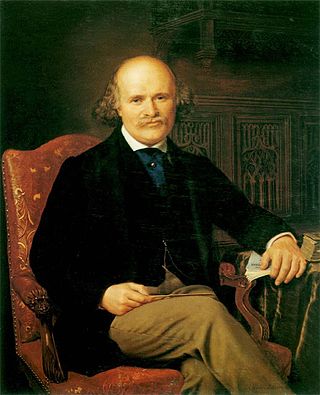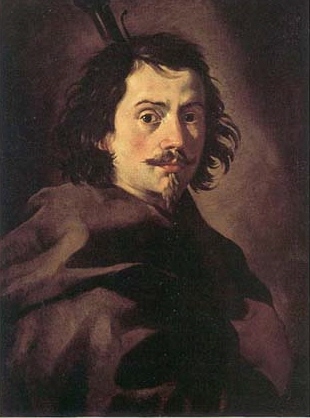Frequent persons on Switzerland's street signs
countries
23 names / 606 streets
Johann Sebastian Bach
 255
Johann Sebastian Bach was a German composer and musician of the late Baroque period. He is known for his prolific authorship of music across a variety of instruments and forms, including; orchestral...
255
Johann Sebastian Bach was a German composer and musician of the late Baroque period. He is known for his prolific authorship of music across a variety of instruments and forms, including; orchestral...
David H. Hubel
 107
David Hunter Hubel was an American Canadian neurophysiologist noted for his studies of the structure and function of the visual cortex. He was co-recipient with Torsten Wiesel of the 1981 Nobel Prize...
107
David Hunter Hubel was an American Canadian neurophysiologist noted for his studies of the structure and function of the visual cortex. He was co-recipient with Torsten Wiesel of the 1981 Nobel Prize...
Caesar von Hofacker
 83
Caesar von Hofacker was a German Luftwaffe Lieutenant Colonel and member of the 20 July plot against Adolf Hitler.
83
Caesar von Hofacker was a German Luftwaffe Lieutenant Colonel and member of the 20 July plot against Adolf Hitler.
Edmund Steinacker
 64
Edmund Steinacker war ein deutsch-ungarischer Publizist und Politiker.
64
Edmund Steinacker war ein deutsch-ungarischer Publizist und Politiker.
Johannes Gutenberg
 15
Johannes Gensfleisch zur Laden zum Gutenberg was a German inventor and craftsman who introduced letterpress printing to Europe with his movable-type printing press. Though movable type was already in...
15
Johannes Gensfleisch zur Laden zum Gutenberg was a German inventor and craftsman who introduced letterpress printing to Europe with his movable-type printing press. Though movable type was already in...
James Watt
 10
James Watt was a Scottish inventor, mechanical engineer, and chemist who improved on Thomas Newcomen's 1712 Newcomen steam engine with his Watt steam engine in 1776, which was fundamental to the...
10
James Watt was a Scottish inventor, mechanical engineer, and chemist who improved on Thomas Newcomen's 1712 Newcomen steam engine with his Watt steam engine in 1776, which was fundamental to the...
Stefano Franscini
 9
Stefano Franscini was a Swiss politician and statistician. He was one of the initial members of the Swiss Federal Council elected in 1848 and Switzerland's first native Italian speaking federal...
9
Stefano Franscini was a Swiss politician and statistician. He was one of the initial members of the Swiss Federal Council elected in 1848 and Switzerland's first native Italian speaking federal...
Henry Dunant
 7
Henry Dunant, also known as Henri Dunant, was a Swiss humanitarian, businessman, social activist, and co-founder of the Red Cross. His humanitarian efforts won him the first Nobel Peace Prize in 1901.
7
Henry Dunant, also known as Henri Dunant, was a Swiss humanitarian, businessman, social activist, and co-founder of the Red Cross. His humanitarian efforts won him the first Nobel Peace Prize in 1901.
Friedrich Schiller
 7
Johann Christoph Friedrich von Schiller was a German polymath and poet, playwright, historian, philosopher, physician, lawyer. Schiller is considered by most Germans to be Germany's most important...
7
Johann Christoph Friedrich von Schiller was a German polymath and poet, playwright, historian, philosopher, physician, lawyer. Schiller is considered by most Germans to be Germany's most important...
Gustave Revilliod
 5
Gustave-Philippe Revilliod, né le 8 avril 1817 à Genève et mort le 21 décembre 1890 au Caire, est un archéologue, collectionneur d'art, éditeur et mécène genevois.
5
Gustave-Philippe Revilliod, né le 8 avril 1817 à Genève et mort le 21 décembre 1890 au Caire, est un archéologue, collectionneur d'art, éditeur et mécène genevois.
Francesco Borromini
 4
Francesco Borromini, byname of Francesco Castelli, was an Italian architect born in the modern Swiss canton of Ticino who, with his contemporaries Gian Lorenzo Bernini and Pietro da Cortona, was a...
4
Francesco Borromini, byname of Francesco Castelli, was an Italian architect born in the modern Swiss canton of Ticino who, with his contemporaries Gian Lorenzo Bernini and Pietro da Cortona, was a...
Thomas Edison
 4
Thomas Alva Edison was an American inventor and businessman. He developed many devices in fields such as electric power generation, mass communication, sound recording, and motion pictures. These...
4
Thomas Alva Edison was an American inventor and businessman. He developed many devices in fields such as electric power generation, mass communication, sound recording, and motion pictures. These...
Alessandro Volta
 4
Alessandro Giuseppe Antonio Anastasio Volta was an Italian physicist and chemist who was a pioneer of electricity and power and is credited as the inventor of the electric battery and the discoverer...
4
Alessandro Giuseppe Antonio Anastasio Volta was an Italian physicist and chemist who was a pioneer of electricity and power and is credited as the inventor of the electric battery and the discoverer...
Lord Byron
 4
George Gordon Byron, 6th Baron Byron was a British poet and peer. He is one of the major figures of the Romantic movement, and is regarded as being among the greatest of English poets. Among his...
4
George Gordon Byron, 6th Baron Byron was a British poet and peer. He is one of the major figures of the Romantic movement, and is regarded as being among the greatest of English poets. Among his...
Jean-Jacques Rousseau
 4
Jean-Jacques Rousseau was a Genevan philosopher (philosophe), writer, and composer. His political philosophy influenced the progress of the Age of Enlightenment throughout Europe, as well as aspects...
4
Jean-Jacques Rousseau was a Genevan philosopher (philosophe), writer, and composer. His political philosophy influenced the progress of the Age of Enlightenment throughout Europe, as well as aspects...
Ernest Ansermet
 3
Ernest Ansermet war ein Schweizer Dirigent.
3
Ernest Ansermet war ein Schweizer Dirigent.
Johann Wolfgang von Goethe
 3
Johann Wolfgang von Goethe was a German polymath and writer, who is widely regarded as the greatest and most influential writer in the German language. His work has had a profound and wide-ranging...
3
Johann Wolfgang von Goethe was a German polymath and writer, who is widely regarded as the greatest and most influential writer in the German language. His work has had a profound and wide-ranging...
Voltaire
 3
François-Marie Arouet, known by his nom de plume M. de Voltaire, was a French Enlightenment writer, philosopher (philosophe), satirist, and historian. Famous for his wit and his criticism of...
3
François-Marie Arouet, known by his nom de plume M. de Voltaire, was a French Enlightenment writer, philosopher (philosophe), satirist, and historian. Famous for his wit and his criticism of...
Arnold Böcklin
 3
Arnold Böcklin was a Swiss Symbolist painter. He is best known for his six versions of the Isle of the Dead, which inspired works by several late-Romantic composers.
3
Arnold Böcklin was a Swiss Symbolist painter. He is best known for his six versions of the Isle of the Dead, which inspired works by several late-Romantic composers.
Ferdinand von Zeppelin
 3
Count Ferdinand von Zeppelin was a German general and later inventor of the Zeppelin rigid airships. His name became synonymous with airships and dominated long-distance flight until the 1930s. He...
3
Count Ferdinand von Zeppelin was a German general and later inventor of the Zeppelin rigid airships. His name became synonymous with airships and dominated long-distance flight until the 1930s. He...
Heinrich Federer
 3
Heinrich Federer was a Swiss writer and Catholic priest.
3
Heinrich Federer was a Swiss writer and Catholic priest.
Guglielmo Marconi
 3
Guglielmo Giovanni Maria Marconi, 1st Marquis of Marconi was an Italian inventor and electrical engineer, known for his creation of a practical radio wave–based wireless telegraph system. This led to...
3
Guglielmo Giovanni Maria Marconi, 1st Marquis of Marconi was an Italian inventor and electrical engineer, known for his creation of a practical radio wave–based wireless telegraph system. This led to...
Franz Schubert
 3
Franz Peter Schubert was an Austrian composer of the late Classical and early Romantic eras. Despite his short life, Schubert left behind a vast oeuvre, including more than 600 secular vocal works,...
3
Franz Peter Schubert was an Austrian composer of the late Classical and early Romantic eras. Despite his short life, Schubert left behind a vast oeuvre, including more than 600 secular vocal works,...